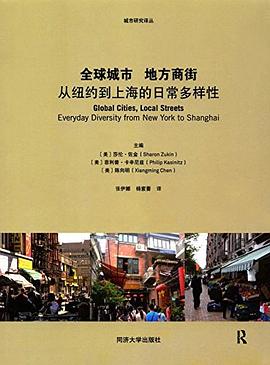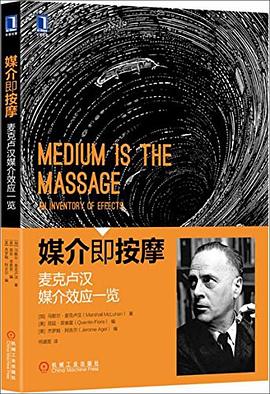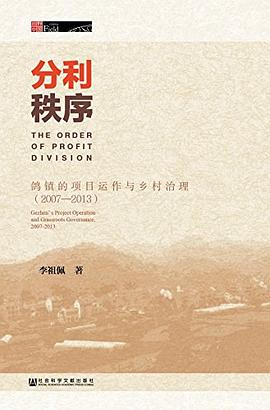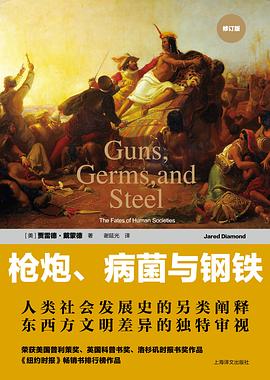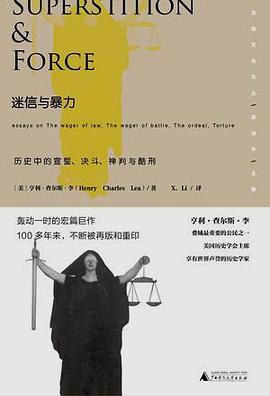

具体描述
A former Wall Street quant sounds an alarm on mathematical modeling—a pervasive new force in society that threatens to undermine democracy and widen inequality.
We live in the age of the algorithm. Increasingly, the decisions that affect our lives—where we go to school, whether we get a car loan, how much we pay for health insurance—are being made not by humans, but by mathematical models. In theory, this should lead to greater fairness: Everyone is judged according to the same rules, and bias is eliminated. But as Cathy O’Neil reveals in this shocking book, the opposite is true. The models being used today are opaque, unregulated, and uncontestable, even when they’re wrong. Most troubling, they reinforce discrimination: If a poor student can’t get a loan because a lending model deems him too risky (by virtue of his race or neighborhood), he’s then cut off from the kind of education that could pull him out of poverty, and a vicious spiral ensues. Models are propping up the lucky and punishing the downtrodden, creating a “toxic cocktail for democracy.” Welcome to the dark side of Big Data.
Tracing the arc of a person’s life, from college to retirement, O’Neil exposes the black box models that shape our future, both as individuals and as a society. Models that score teachers and students, sort resumes, grant (or deny) loans, evaluate workers, target voters, set parole, and monitor our health—all have pernicious feedback loops. They don’t simply describe reality, as proponents claim, they change reality, by expanding or limiting the opportunities people have. O’Neil calls on modelers to take more responsibility for how their algorithms are being used. But in the end, it’s up to us to become more savvy about the models that govern our lives. This important book empowers us to ask the tough questions, uncover the truth, and demand change.
作者简介
Catherine ("Cathy") Helen O'Neil is an American mathematician and the author of the blog mathbabe.org and several books on data science, including Weapons of Math Destruction. She was the former Director of the Lede Program in Data Practices at Columbia University Graduate School of Journalism, Tow Center and was employed as Data Science Consultant at Johnson Research Labs.
She lives in New York City and is active in the Occupy movement.
目录信息
前言
第一章 盲点炸弹 不透明、规模化和毁灭性
第二章 操纵与恐吓 弹震症患者的醒悟
第三章 恶意循环 排名模型的特权与焦虑
第四章 数据经济 掠夺式广告的赢家
第五章 效率权衡与逻辑漏洞 大数据时代的正义
第六章 筛选 颅相学的偏见强化
第七章 反馈 辛普森悖论的噪声
第八章 替代变量和间接损害 信用数据的陷阱
第九章 “一般人”公式 沉溺与歧视
第十章 正面的力量 微目标的出发点
结论
致谢
· · · · · · (收起)
读后感
感谢 recall 这本书的不知名同学,谢谢你逼得我用4个小时读完。 作者创造了“数学杀伤性武器”(Weapons of Math Destruction, WMD)这个词指代统计模型,探讨现实生活中统计模型的大规模应用对社会的影响。 正面例子是棒球、篮球比赛的分析,可以即时调整战术(参考《点球成金...
评分 评分 评分The answer is yes. A model, after all, is nothing more than an abstract representation of some process, be it a baseball game, an oil company’s supply chain, a foreign government’s actions, or a movie theater’s attendance. Whether it’s running in a comp...
评分The answer is yes. A model, after all, is nothing more than an abstract representation of some process, be it a baseball game, an oil company’s supply chain, a foreign government’s actions, or a movie theater’s attendance. Whether it’s running in a comp...
用户评价
这本中文版已经引进了。作者懂技术,更看得懂技术所带来社会动力,乃至一些技术无法预见的后果……当然视角是左翼的
评分一篇讨伐大数据的檄文。与那些赞歌不同,作者解释各行各业中所用的数学模型(以及人们应对这些模型的方法)背后所蕴藏的种种歧视、黑箱与不公。这些阴暗面加剧了当今社会的贫富差距和底层人民的愤怒,监管时不我待。
评分迷信大数据的时代,需要好好读一下这本书
评分学术界的人或许会说这里都是例子,比较浅薄,不成体系也没有深度。但我觉得这里的讨论都非常有价值,作者也非常真诚。作为一个比较早的讨论统计和数据方法的伦理以及社会公平的读物来说,我觉得值得赞美一下。
评分想知道"大数据"毛病的不用读了。完全是一个"science is bad because it hurts my feeling"的完美案例。这下某些低等物种又可以造反有理了。
相关图书
本站所有内容均为互联网搜索引擎提供的公开搜索信息,本站不存储任何数据与内容,任何内容与数据均与本站无关,如有需要请联系相关搜索引擎包括但不限于百度,google,bing,sogou 等
© 2025 book.quotespace.org All Rights Reserved. 小美书屋 版权所有



